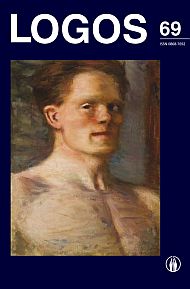Tautosakos Rinkimo Ištakos Šilutės Apylinkėse: Objekto Ir Konteksto Sąveika
The Beginnings of Folklore Collecting in the Environs of Silute: The Interaction between Subject and Context
Author(s): Lina PetrošienėSubject(s): Customs / Folklore, Music, Ethnohistory, Cultural Anthropology / Ethnology, 19th Century
Published by: Visuomeninė organizacija »LOGOS«
Keywords: folklore; folksong melodies; musical folklore; East Prussia; Silute;
Summary/Abstract: The article discusses the first period of documenting Lithuanian folklore in East Prussia from its beginnings in the 18th century up to the 20th century. The melodies of Lithuanian songs documented in the 19th century in the environs of Silute – a small and relatively peripheral territory during the period under study – are analyzed. The study found that those most interested in Lithuanian folklore and language in East Prussia at that time were the initial, non-Lithuanian, scholars of Indo-European studies whose attitude and initiatives mobilized the rural intelligentsia as well. This cooperation laid the tangible foundation for Lithuanian folklore and ethno-musical studies. Defects in methodology for documenting folkloric musical material in the 19th century, however, raise many problematic questions. These questions are addressed by comparison of the Lithuanian songs of the 19th and 20th centuries. Study of the musical material of the Silute region leads to the formulation of an hypothesis about the survival of the ancient stratum of local folklore into the 19th century, its existence alongside the invading German secular and religious worldview, and its gradual extinction. The ancient musical stratum was “covered up” by the newer, because a specific portion of songs popular with and sung by the East Prussian Lithuanians have not been found in the 19th century, or perhaps were never there at all.
Journal: LOGOS - A Journal of Religion, Philosophy, Comparative Cultural Studies and Art
- Issue Year: 2011
- Issue No: 69
- Page Range: 163-183
- Page Count: 21
- Language: Lithuanian

